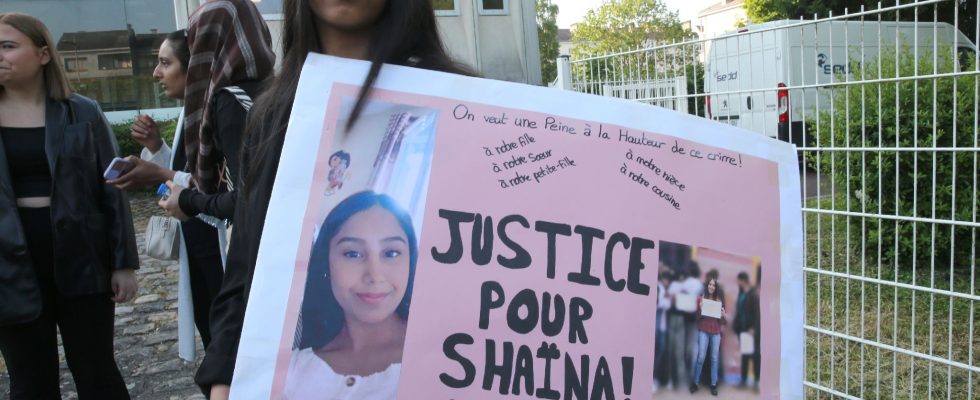Twenty years have passed since Sohane Benziane, a 17-year-old French girl, was burned alive by Jamal Derrar, a 19-year-old French boy, in a town in Vitry-sur-Seine, in Val-de-Marne. It was October 4, 2002. Since then, in France, as in many Western countries, the new feminist activism has become a powerful cultural movement, driven by social networks (with the #MeToo, BalanceTonPorc movements, etc.), the media, cinema, literature (“Now we get up and leave” – Title of the now famous article by Virginie Despentes in Release, after the César for best director was awarded to Roman Polanski, on February 28, 2020), and the left (in the last presidential election, 44% of voters under 35 voted for Jadot or Mélenchon, according to a poll by the ‘Ifop the day after the second round).
Twenty years have passed, yes. But for “the neighborhood girls”, nothing has changed. On October 25, 2019, Shaïna Hansye, 15, was stabbed, then burned alive by her boyfriend, Omar, 17, because she was pregnant, and he feared for his image. A book (The reputation, Ed Les Echappés. €19.50) as exciting as it is edifying, appears this Thursday, October 5, on the subject of this murder. The journalist of Charlie Hebdo, Laure Daussy, retraces the destiny of Shaïna, a cheerful girl who wanted to “live in France like a Frenchwoman”, in the words of her mother. At 13, Shaïna’s young life was shattered for the first time by a sexual assault which – through a paradoxical effect as cruel as it was widespread – had earned her the reputation of an “easy girl” among some in the city. That is to say, an object of concupiscence and contempt. The police investigation and the trial report expose the murderer’s sordid motivations. Omar’s fellow prisoners say he told them he “killed his girlfriend who was a whore”. That he had “made her pregnant” and that he did not want her mother to find out “because he is Muslim”. That he preferred, finally, “to take thirty years, rather than to be the father of a son of a bitch”. During the trial, the expressions “whore” and “easy girl” will come up many times, putting Shaïna’s family to torture.
An assassination which is not a news item
It is all the merit of The reputation, by Laure Daussy: do not stick to the chronicle of a murder, but expose through investigation and analysis how the assassination of Shaïna is not a news item. In a chapter entitled “Girls under surveillance”, the journalist gives the floor to other teenage girls from Creil, Saïna’s age, who talk about their “supervised daily life”. A daily life “controlled by a set of implicit rules which are imposed on them and which everyone considers unfair, but which seem immutable to them.” “A sword of Damocles hangs above their heads,” continues Laure Daussy: that of reputation.” Some say they feel “in prison”. “The older I got, the more I wore jogging pants. You have to hide your shape, your breasts, otherwise people will say that you were looking for it,” testifies one of them… In these neighborhoods of France , feminine coquetry and joy are hunted down and punished. But they have never heard of MeToo, notes the journalist.
Twenty years have passed since the murder of Sohane Benziane. But we continue to abandon these young French women to a misogynistic norm, a mixture of a code of honor, sexual frustration, and rigorous Islam (for women, only). To denounce it while being a feminist, you need to have the courage of Laure Daussy. That of talking about these successive waves of immigration, always directed towards the same places which we abandon to the difficulties and to the norm of the most vindictive. A norm that thrives in the shadow of our cowardice and hypocrisy. By sociological indifference, by cultural relativism, or by fear of being accused of “Islamophobia” – we are dreaming, given that the main victims are precisely French Muslim women! -, the new activism too often looks away, and allows a two-speed feminism to take hold. However, it would be necessary to harass the public authorities, guarantors of the Constitution. Which proclaims, in its first article: “France is an indivisible, secular, democratic and social Republic. It ensures equality before the law for all citizens without distinction of origin.”
Twenty years have passed since the murder of Sohane Benziane. In Vitry-sur-Seine, a stele was placed: “In memory of Sohane, who burned to death. So that boys and girls can live better together in equality and respect.” The plaque has been desecrated several times since. The Republic and feminism, too.
